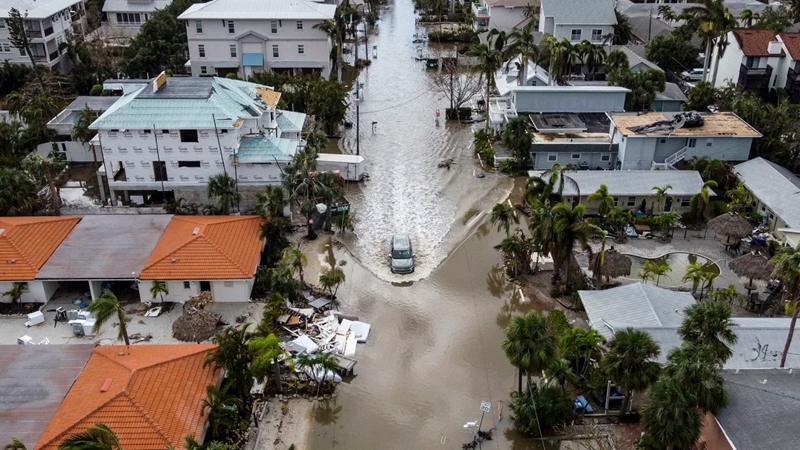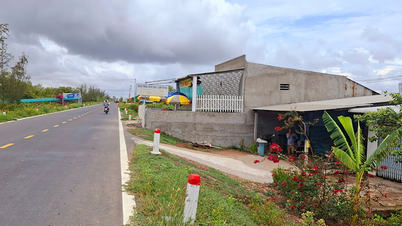(CPV) – A recent report by the International Chamber of Commerce (ICC) shows that extreme weather events have caused $2 trillion in damage to the global economy over the past decade.
 |
| Hurricane Milton makes landfall near Siesta Key, Florida, US on October 10, 2024. (Photo: AFP/Getty Images) |
Research by specialist economic consultancy Oxera has shown that nearly 4,000 climate-related extreme weather events impacted 1.6 billion people between 2014 and 2023.
In just the last two years, global economic losses from extreme weather events have reached $451 billion – up 19% on the previous eight years. Oxera’s analysis also highlights the severe impact on many developing economies – with extreme weather events often costing countries more than their annual GDP.
The report, released at the 29th Conference of the Parties to the United Nations Framework Convention on Climate Change (COP29) in the Azerbaijani capital Baku, warns of worsening climate change. The ICC calls on governments to take immediate action to prevent this.
COP29, where world leaders debate the responsibility of rich nations to help poor countries transition to green economies, adapt to global warming and cope with damage from increasingly extreme weather events.
“The data from the past decade clearly shows that climate change is not a problem of the future. The real economy is suffering huge productivity losses from extreme weather events right now,” said John Denton, Secretary General of the ICC.
Extreme weather events such as storms, floods, wildfires, droughts and heat waves not only cause damage to physical assets but also seriously affect global production, trade and service industries.
The report shows a gradual upward trend in the cost of damage from extreme weather events from 2014 to 2023, with a spike in 2017 when a strong hurricane season caused major damage to North America.
The United States suffered the greatest economic losses from extreme weather events over the past 10 years, at $935 billion, followed by China at $268 billion and India at $112 billion. Germany, Australia, France and Brazil were also among the top 10 most affected countries.
Mr Denton stressed that concrete results are needed to accelerate climate action, especially in the current economic climate. To achieve this, a comprehensive financial package is needed to help countries transition to green and climate-resilient economies.
He also argued that funding for developing countries is not charity, but an investment in a stronger and more sustainable global economy. From a business perspective, urgent, coordinated and collective action to reduce emissions and increase resilience to climate change is vital.
Ilan Noy, a disaster economist at Victoria University of Wellington, said the ICC report’s figures were consistent with his previous research, but stressed that the data did not fully capture the real picture. “It is worth noting that these figures miss the significant impact on poor communities and vulnerable countries,” he said.
Climate change is having serious consequences. A study by Ilan Noy last year estimated that the annual economic losses from extreme weather linked to climate change could be as high as $143 billion. However, due to a lack of data, especially in Africa, this estimate may be incomplete.
The ICC called on world leaders to act quickly to provide financial support to countries that need help in cutting pollution and developing sustainably to withstand shocks from extreme weather events./.
Source: https://dangcongsan.vn/the-gioi/tin-tuc/kinh-te-toan-cau-thiet-hai-2000-ty-usd-do-thoi-tiet-cuc-doan-683020.html
































































































Comment (0)